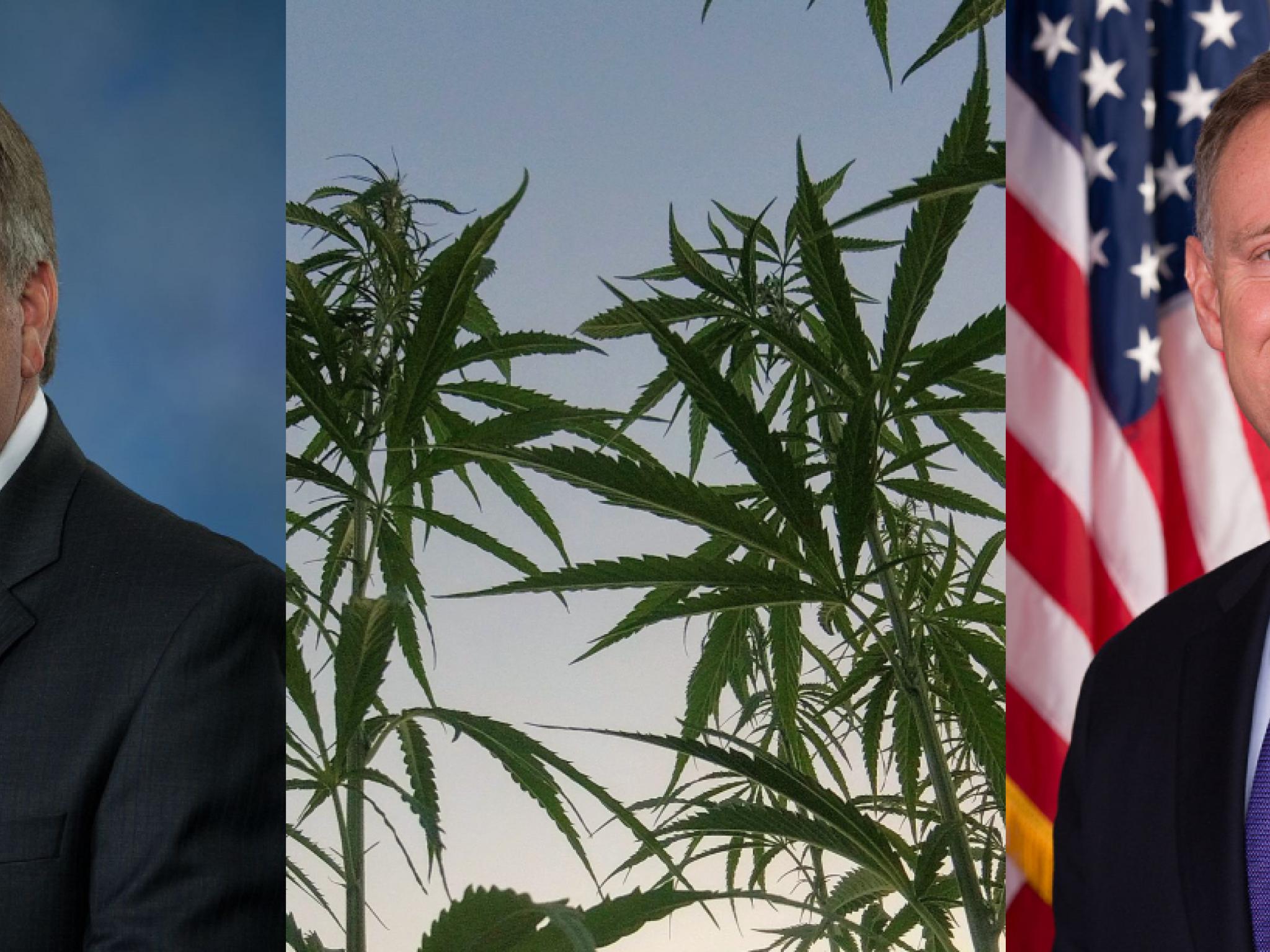
Congress members Scott Peters (D-CA) and Doug LaMalfa (R-CA) introduced legislation on Monday that seeks to crack down on the use of banned pesticides on illegal marijuana grows on public land.
The bill called the Targeting and Offsetting Existing Illegal Contaminants (TOXIC) Act was drafted to address and rectify the environmental damage being done by illegal pesticides. According to an official statement from LaMalfa’s office, TOXIC also raises criminal penalties for those who grow cannabis on federal land and use banned pesticides.
It is important to note that banned pesticides are banned for a reason: they're dangerous. Consumers who consume even small amounts of marijuana treated with these substances could potentially die.
“Illegal marijuana grows have brought dangerous cartels into our rural towns, terrorizing residents and decimating our landscape,” LaMalfa stated. “The banned pesticides they use on their product seep into the soil and watershed, poisoning wildlife and endangering residents who inadvertently consume it. Everyone; outdoor enthusiasts, nearby residents on their own land, wildlife, Forest Service and law enforcement personnel are all at risk. The TOXIC Act is necessary to criminalize those who cause damage to our public land with banned chemicals and helps remedy the environmental impacts.”
The Bill's Highlights
If the legislation passes it would authorize $250 million over five years for the Forest Service to use Superfund toxic waste remediation to address environmental damage caused by the release of banned pesticides on federal lands for cannabis cultivation.
The measure also proposes raising criminal penalties for using banned pesticides in illegal cannabis cultivation to a maximum of 20 years in prison and $250K in criminal fines to create parity with the criminal penalties for smuggling forbidden pesticides into the country.
“While those who grow illegal cannabis often work with drug cartels seeking wealth and influence, our wildlife, habitats and public health pay the price,” Peters stated. “The damage from these extremely dangerous and illegal pesticides harms our watersheds, endangered species like pacific fishers and spotted owls, Forest Service agents, and consumers. The TOXIC Act will direct the federal government to use all available resources to fix the harm caused by banned pesticides smuggled across our southern border.”
California Illegal Cannabis Grows
Illegal marijuana cultivation sites are reoccurring and present a serious problem in the Golden State. The bill’s introduction comes several months after the California county sheriff called for a state of emergency over illegal cannabis grows.
In May, the Sheriff’s Office of the Siskiyou County in the northernmost part of California was asking state and federal regulators to see firsthand the problems created by illicit cannabis cultivation. Sheriff Jerimiah LaRue posted a message on Siskiyou County Sheriff’s Office’s Facebook page along with a video of one of the many illegal weed farms and the problems it's causing.
“The purpose of this video is to be transparent about what the Siskiyou County Sheriff’s Office encounters on a regular basis while performing search warrant operations at illegal cannabis grows within the County.”
The video showed swimming pools that are being used as justification for water usage but are actually directly piped into a greenhouse was one example among many others.
LaMalfa Keeping To His Promise
LaMalfa reported at the time that he had visited Siskiyou County in 2021 and saw the damage prompting him to recognize that the County needs more financial support to deal with the enormous problem.
“The bottom line is they need more dollars to do this because they can’t do it with the personnel they have, as hard as they try, and I don’t see any big help coming from the state," LaMalfa told KRCR's Mason Carroll. LaMalfa added that the federal government should help out
“I will do what I can in Congress to find ways to get money in the back door or other ways to make funding eligible to help battle this because this is not adding to the quality of life," LaMalfa said. "People have to live amongst it or see it sold on the street and somehow endangering their kids.”
It looks like LaMalfa did not forget his promise. With the filing of the TOXIC Act, he is proactively trying to solve the problem.
Photo: Courtesy of Matteo Paganelli on Unsplash and Wikimedia Commons







